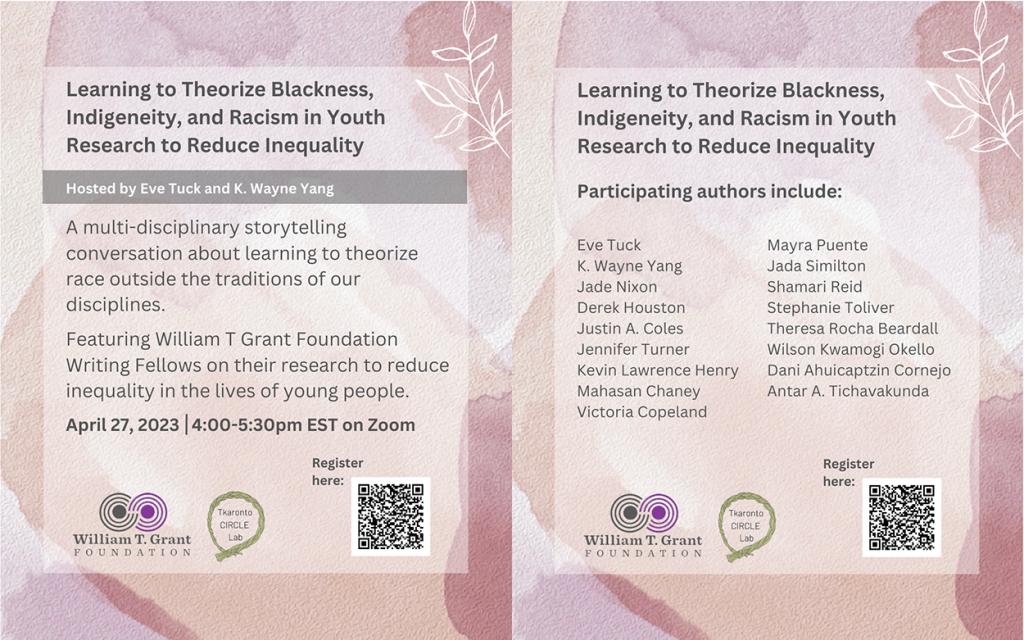Mayra Puente and Antar Tichavakunda of UC Santa Barbara’s Gevirtz School will be two of the participants in the webinar “Learning to Theorize Blackness, Indigeneity, and Racism in Youth Research to Reduce Inequality” on Thursday, April 27, 4-5:30 pm EST on Zoom. The event, presented by the William T. Grant Foundation, will be hosted by Eve Tuck, University of Toronto, and K. Wayne Yang, UC San Diego. Free registration is available online.
This multi-disciplinary storytelling conversation about learning to theorize race outside the traditions of academic disciplines will feature William T. Grant Foundation Writing Fellows on their research to reduce inequality in the lives of young people. Other participants are Jade Nixon, Derek Houston, Justin A. Coles, Jennifer Turner, Kevin Lawrence Henry, Mahasan Chaney, Victoria Copeland, Jada Similton, Shamari Reid, Stephanie Toliver, Theresa Rocha Beardall, Wilson Kwamogi Okello, and Dani Ahuicapahtzin Cornejo.
Mayra Puente is an Assistant Professor in the Department of Education. Dr. Puente’s various degrees and concentrations have shaped her transdisciplinary approach to higher education research. She is particularly concerned with college access, choice, transition, retention, and success issues for rural Latinx students and other institutionally marginalized student groups and communities. Dr. Puente draws on frameworks like Critical Race Theory, Latino Critical Race Theory, Critical Race Spatial Analysis, and Chicana Feminisms to address these pressing educational issues and enact social justice.
Antar Tichavakunda is also an Assistant Professor in the Department of Education. Tichavakunda is a product of Washington, DC Public Schools. Prior to his doctoral studies, Tichavakunda worked as an 11th grade English teacher in DC Public Schools. Using qualitative inquiry, Tichavakunda engages in research on college readiness, Black students’ experiences at predominantly White institutions, and more broadly the sociology of race and higher education.
